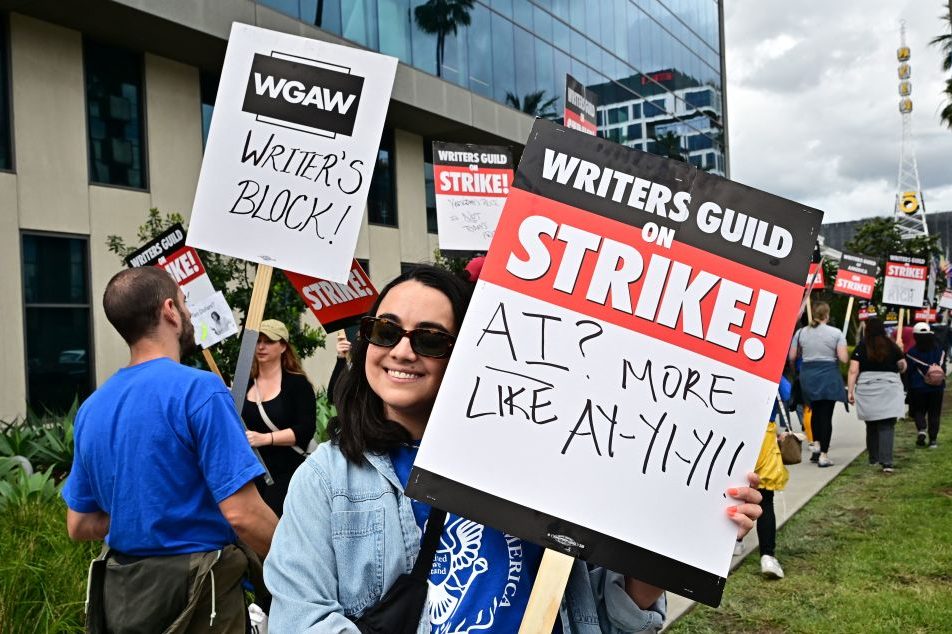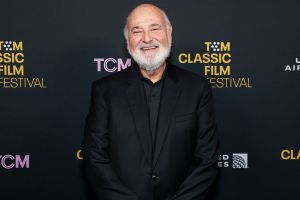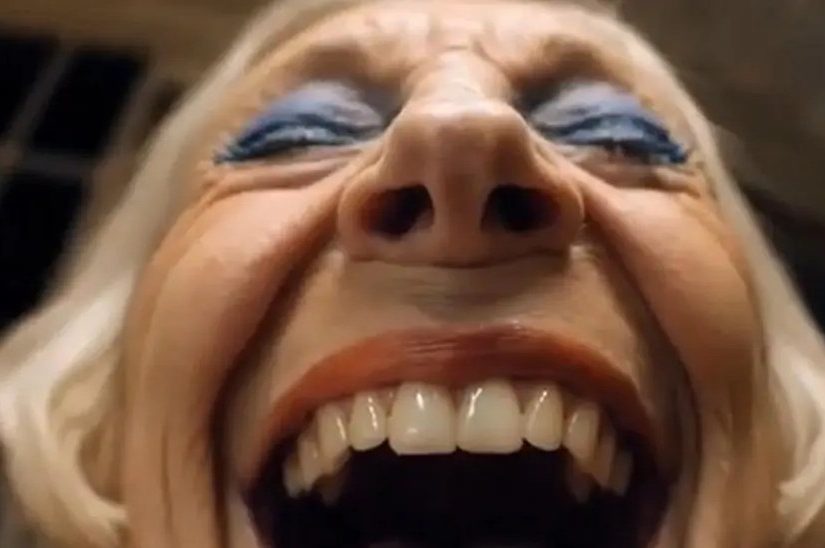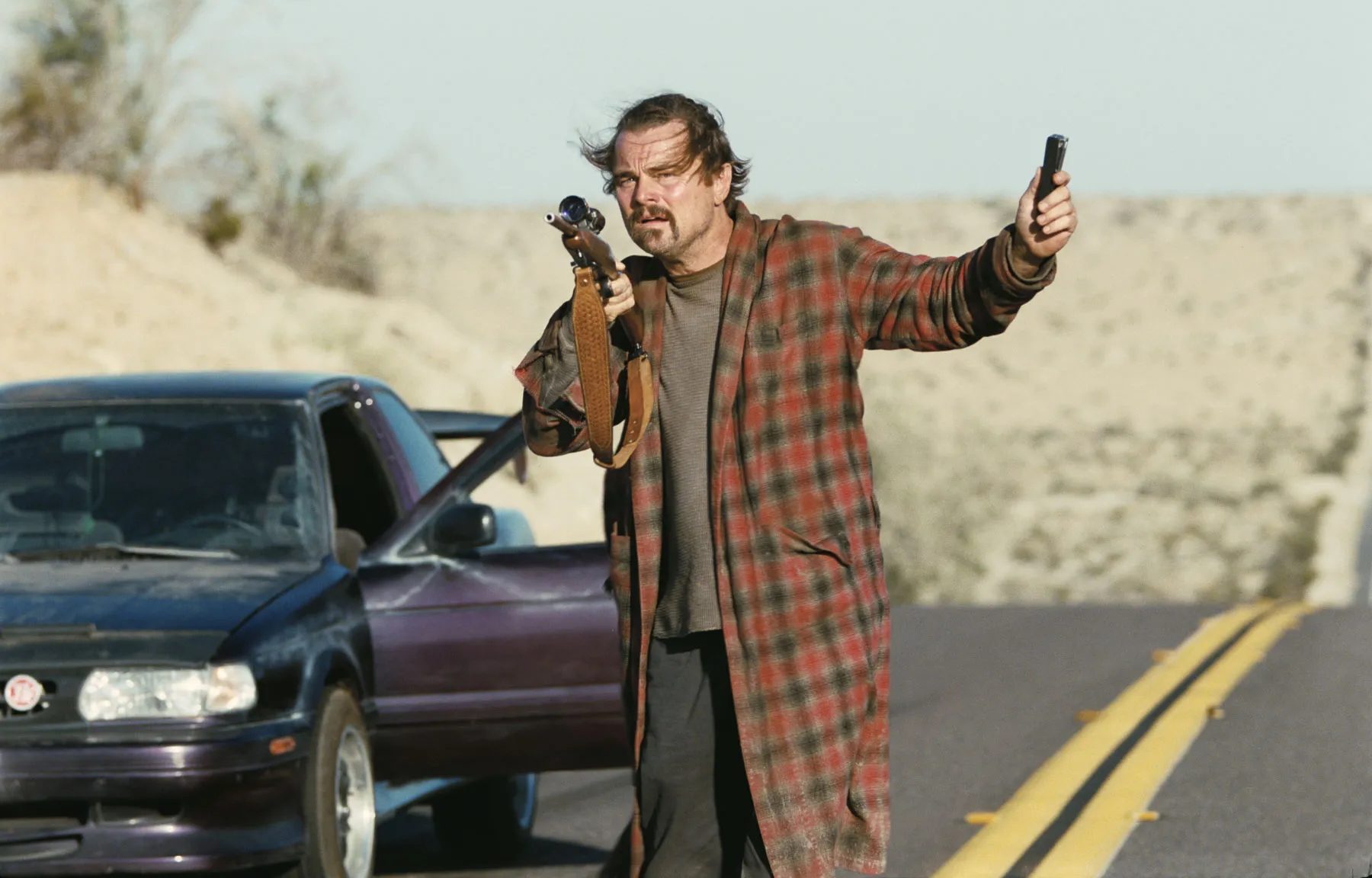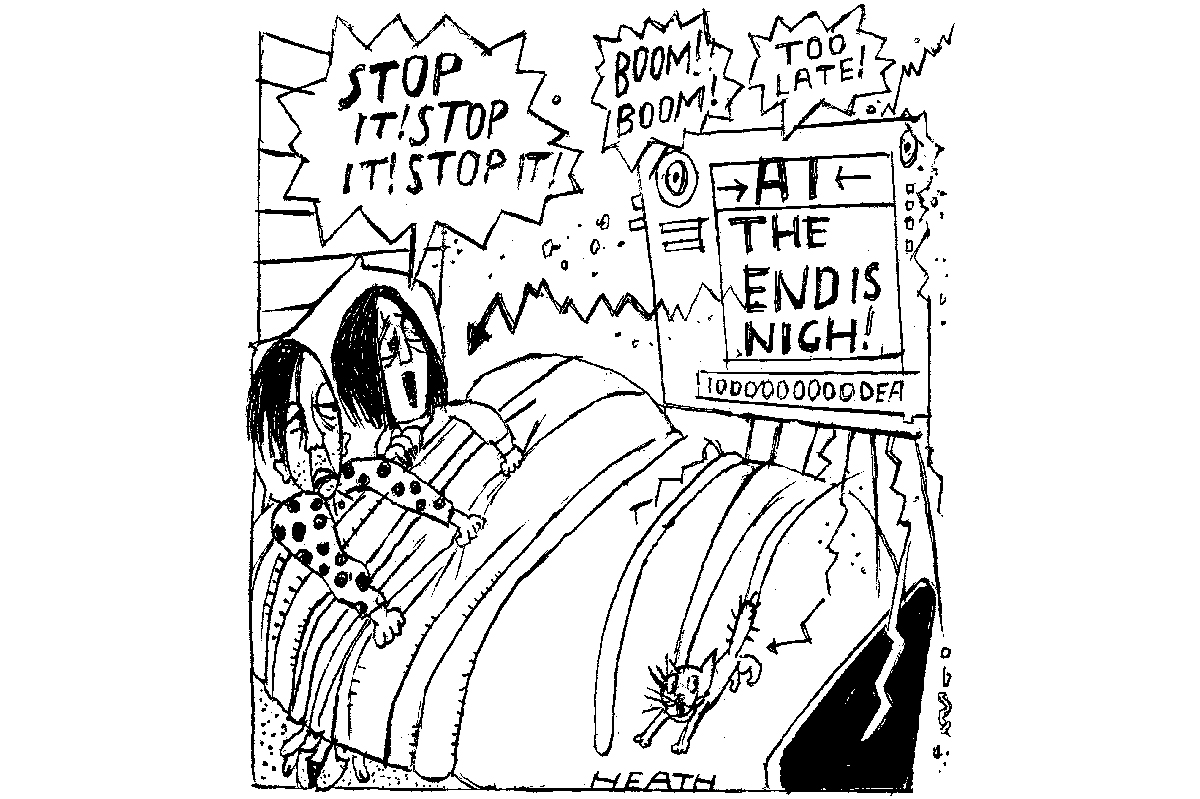It’s a cliché of publishing that men over the age of forty only read military history. In my case it’s not entirely true: I still occasionally squeeze in the odd novel, some politics, even poetry if I’ve drunk too much sweet wine. But it’s true enough that my mind is probably over-furnished with historical military examples, metaphors and allusions. And for the last week I’ve been trying to find the correct analogy, from the annals of war, to characterize the battle recently joined by the Writers Guild of America.
For anyone that has missed this particular strike, here’s the skinny: as of May 2, 2023 all the screenwriters of the USA, from East Coast to West, from gag-smiths to dramaturgists, have downed pencils, pens, laptops and refused to write a single extra word for “the studios.”
Given that screenwriting in America is practically a closed shop — you can’t write for Hollywood unless you’re a member of the WGA — the effects of this stoppage have been instant, and will be impressive. Late night shows — such as Stephen Colbert’s and Jimmy Fallon’s which rely on new material generated daily — have already gone dark. If the strike persists, some of your favorite US shows will be affected, halted, even scrapped. The Last of Us, one of the most acclaimed of recent dramas, might have to wait a long time for its much-anticipated second season.
Writers are insisting that studios barely use AI in any form
In a sometimes frivolous industry, this is a serious development. The last time the writers went on strike like this — in 2007 — many shows badly faltered, and a few never recovered, as the schedules filled up with reality TV (which by definition does not require scripts). One of those new shows was The Celebrity Apprentice, which, in turn, led to the renewed rise of Donald Trump as TV star, and, eventually president. Yay. Or not.
In short, writers’ strikes are expensive bad news for almost everyone. So why are the scribes manning the picket lines at Paramount? There are various technical, understandable reasons — modern streaming services prefer shorter seasons of eight or ten episodes, compared to the olden days — which equals less money for writers, even as the streaming companies are coining it.
However, this time around there is a new factor, which means this latest strike is of universal human importance: the writers are demanding that the studios forego the use of Artificial Intelligence. Hence some of the more colorfully worded placards lofted by protesters: “No bots, just human plots,” “Wrote this ChatGPT did.” In other words, this is the first serious pushback from any of the creative professions/knowledge economy sectors against the advance of the thinking, writing, painting, counting, joking, all-singing-all-dancing, music-composing machines.
When it comes to AI, the requirements of the WGA are explicit. The union’s initial demands put it like this:
“Regulate use of artificial intelligence on MBA-covered projects (projects covered by the Minimum Basic Agreement between writers and studios): AI can’t write or rewrite literary material; can’t be used as source material; and MBA-covered material can’t be used to train AI.“
There is no gray area here. Such is the perceived threat of AI, writers are insisting that studios barely use AI in any form — and certainly not to generate original lines, jokes, scripts, ideas; nor are the studios allowed to use AI to develop, polish or alter human writing; and nor will they be allowed to show human writing to the machines. It’s a flat no.
Unfortunately, the studios in return have been equally brusque. In response to this demand, all the studios are offering is an “annual consultation” on the ongoing use of AI. And that’s it. If the writers are saying “Forget it,” the studios are saying “Get stuffed.”
As a writer, my heart is, unsurprisingly, with the writers. For a start they are seriously underpaid in an industry which generates squillions. Netflix should show some humanity: it can afford to pay residuals. And when it comes to AI, I am equally sympathetic. However, and at the same time, no sane studio could agree to the firm demands made by the writers. Because, if the studios did agree to this, that would be an invitation to other, foreign, unaffected studios to use AI, and steal a huge advantage over Hollywood.
Moreover, the WGA demands don’t gel with the expressed opinions of so many writers, in hundreds of articles, that AI writing won’t ever be any good, because machines can’t truly think, feel or learn “like humans.” One such opinion recently appeared in the Guardian, in an article on the WGA strike in which Gaby Hinsliff declares: “What [AI] produces is hollow pastiche rather than art, piggybacking shamelessly on centuries of human endeavor (it learns by scanning samples of existing writing).”
Multiple questions go begging here. For instance, if AI learns to write by “scanning examples of existing writing,” in what way does this differ from humans? James Joyce wasn’t born with Ulysses encoded in his DNA, ready to be unfurled the moment he picked up a fountain pen. He read lots and lots of books, and gathered influences and ideas.
In short, like AI, he learned by scanning examples of existing writing. And, given that AI learns language rather like humans, why should the AI writing necessarily be “pastiche” and inferior? That’s like saying a cheetah cannot run because it does not have two legs like a human. No, it has four legs. But it still runs. And it runs differently — it runs faster, and better.
This surely is the deeper fear, underlying all these dismissive articles about crappy AI prose, and the rather desperate demands in the WGA negotiations. The existential dread is that AI will not only replace humans because it is cheaper, easier and not prone to strike action, the final fear is that AI will eventually and inevitably be superior.
This, then, is why the WGA strike action matters to all of us, not just fans of Severance and Yellowstone. We can expect many more battles like this — against the irresistible machines. Perhaps it will be lawyers next, or architects, or musicians, or accountants, or studio producers, or me, or you.
In each case (unless AI meets some unexpected glitch in its evolution, or humans worldwide voluntarily agree to cease AI development) I expect these battles mainly to be lost, and likewise the entire war — even if they are battles which, individually, make a kind of noble sense. And must be fought.
So what battle and what war is most like the WGA strike against AI? There are echoes of Denmark’s crazy nineteenth-century assault against rising Prussia; there are more than a few hints of Pearl Harbor; but maybe my favorite comparison, if only for reasons of delicious obscurity, is Paraguay’s doomed war of the Three Kingdoms, in 1864-1870. The war actually began quite well for Paraguay, but it ended with foreign troops in the Paraguayan capital — because Paraguay decided to fight Uruguay, Argentina and Brazil, all at once. You can argue that it was a brave and heroic war; yet it was a war that could never be won.
This article was originally published on The Spectator’s UK website.



